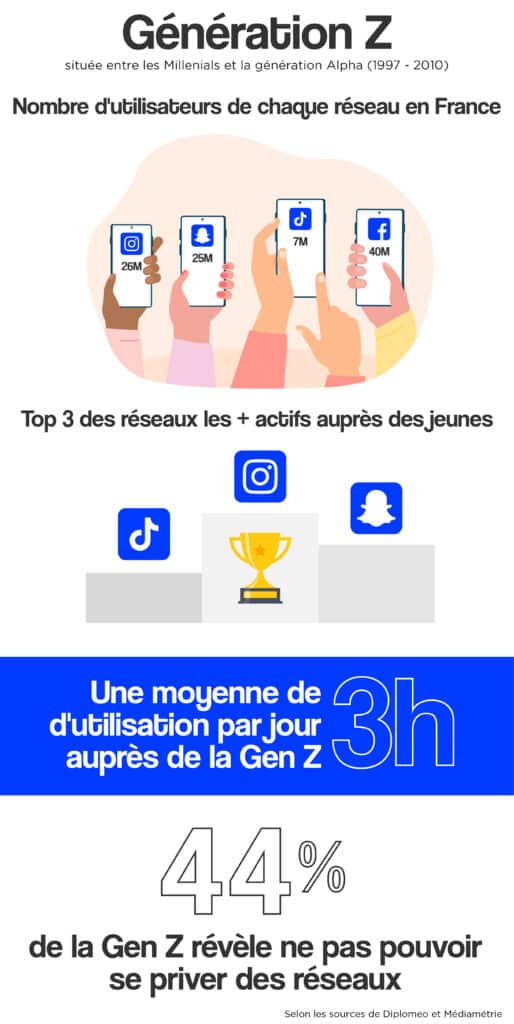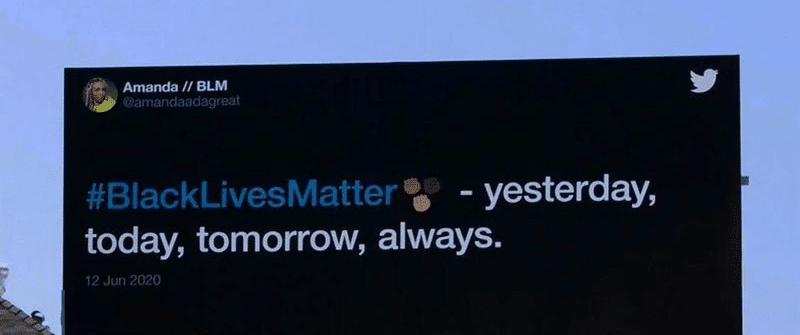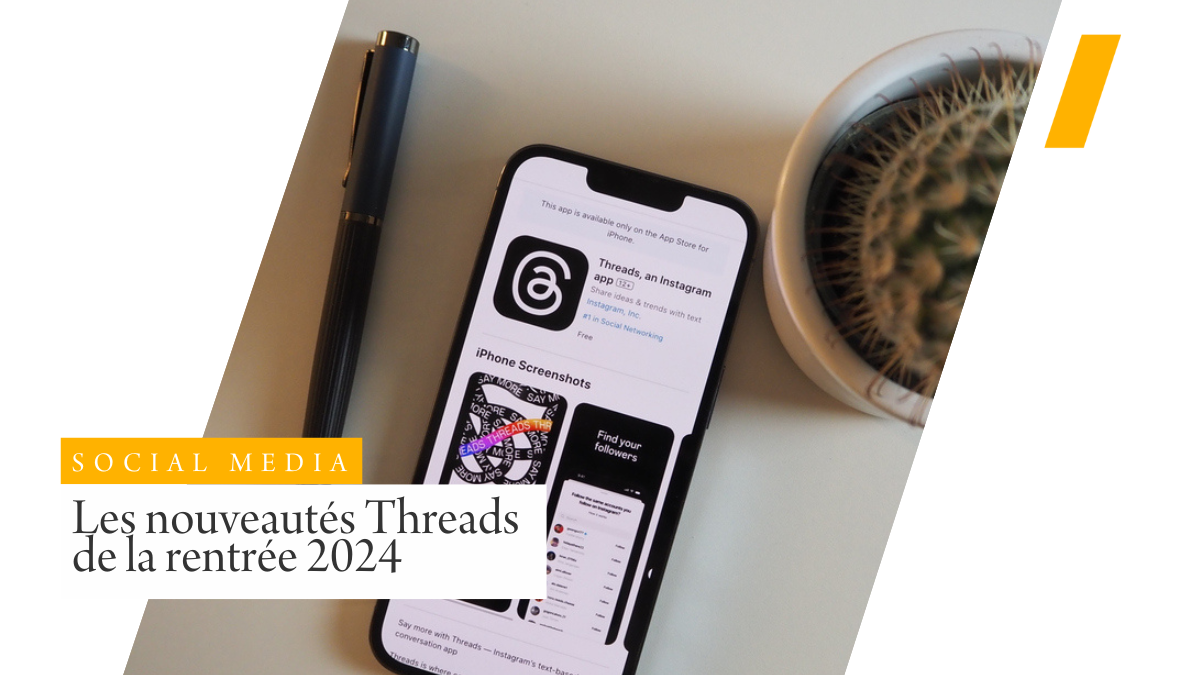Nowadays, social networks are ubiquitous, and their use has become daily for most users. However, their use differs from generation to generation.
Ever heard of Generation Z?
Let’s start at the beginning and define what, or rather who, Generation Z is. It refers to the generation between the Millennials and the Alpha Generation. It includes today’s teenagers and young adults, born between 1997 and 2010. This generation has always lived with the daily use of the Internet. So we’re dealing with a generation that’s constantly connected to the outside world. Nothing escapes them!
Travel Insight based its article on several studies, carried out by Diplomeo among over 3,800 people aged 16 to 25, and Médiamétrie.

As you know, there are over 26 million users of Instagram in France, according to Médiamétrie, making it the most popular social network among 16-25 year-olds. Snapchat comes in second, closely followed by TikTok, the app that’s gaining more momentum by the day, since it was the most downloaded app during 2022. What’s more, 63% of 16-25 year-olds say they spend at least 1 hour a day on it, and 7% more than 5 hours a day. This is a generation born into hyperconnectivity.
These applications are the 3 social networks on the podium of the most active among young people. Facebook, on the other hand, is no longer counted as one of the top networks among Generation Z. In France, Facebook has more than 40 million users, making it the leading social network for all ages, but according to Diplomeo‘s survey, this position is maintained mainly by older users. Indeed, 76% of 16-18 year-olds say they are no longer active on the ancestral application since the emergence of competing networks, while 72% of 24-25 year-olds continue to use it. In 2020, Mark Zuckerberg’s app lost 6% of its users, and was deleted by 12% of Generation Z users. A real downturn for this little gem, which had been revolutionary just a few years earlier.
As far as YouTube is concerned, over 40% of Generation Z members are active on the video platform. With YouTube influencers increasingly present, the platform is gaining momentum and attracting the interest of many users due to its highly diversified content.
As the interests of the young people of 2012 are not the same as those of the young people of 2022, they use them mainly to chat with friends, get information, or simply to pass the time. Since the 2000s, members of Generation Z have felt the need to be in constant contact with those around them. As a result, they spend hours logging on to their favorite social networks, sending messages, photos and videos.


Social networking is not just for young people.
In 2016, Air France – KLM’s low-cost airline named Transavia, communicated in July the opening of a Snapchat account showing the behind-the-scenes of the company and sharing the good mood of employees during the vacation departure period. This initiative on the part of Transavia was intended to encourage Gen Z to travel more with this particular airline, and get closer to its customers. According to Air Journal, Transavia claims to be the first airline to launch on social networks and target Generation Z. The campaign was a real success, given the buzz it generated throughout France.

What’s more, screen addiction, and in particular social networking, is becoming an inescapable topic intimately linked to the use of Generation Z. Young people spend more than 3 hours a day on their favorite networks, including, as we saw earlier, Instagram, Snapchat and TikTok.
On the other hand, studies have shown that the new generation gets bored much more quickly than before, and needs to be constantly entertained. We see this when we pass a teenager in the street glued to his or her screen.
As you can imagine, at the slightest sign of boredom, they prefer to jump on their phones and scroll through the news feeds. 44% of them say they can’t do without social networking, even for a day. Born with new technologies and the latest news in their hands, the new generation sees itself as completely addicted to networking.
According to a study carried out by Express VPN in collaboration with Pollfish on the impact of social networking on Generation Z, addiction to social networking sometimes takes its toll on some users. While they may be experts in the field, they are also victims of its negative effects. For example, 90% of Gen Zers say that social networking has an impact on their self-esteem. 93% say it affects their happiness, while 76% say it can lead to depression.
The constant quest for likes, comments and shares seems to have a negative impact on self-esteem, creating a kind of identity crisis for some. Nearly one in two people (30%) deletes publications that don’t generate enough “likes”, and therefore interest. Without doubt, this desire for online popularity shows the harmful side of networking. On the other hand, a study reveals that two out of three people are fully aware of their addiction and the negative impact of social networking.

In short, social networking with the new generation and its use is very different from that of Millennials. Statistics show the impact of networks on the well-being of their everyday users, and how this changes their behavior and ideas. Networks have both advantages and disadvantages, which are a result of their mental health. On the other hand, taking a step back from one’s addition often helps to establish a healthy relationship with these new media.








